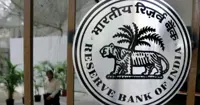Testing geoengineering
29 Oct 2011
 A team composed of Caltech's Doug MacMynowski, Carnegie's Ken Caldeira and Ho-Jeong Shin, and Harvard's David Keith used modeling to determine the type of testing that might be effective in the future. Their work has been published online by Energy and Environmental Science.
A team composed of Caltech's Doug MacMynowski, Carnegie's Ken Caldeira and Ho-Jeong Shin, and Harvard's David Keith used modeling to determine the type of testing that might be effective in the future. Their work has been published online by Energy and Environmental Science.Ideas for solar radiation management include increasing the amount of aerosols in the stratosphere, which could scatter incoming solar heat away from Earth's surface, or creating low-altitude marine clouds to reflect these same rays. Clearly the size of the scale and the intricacies of the many atmospheric and climate processes make testing these ideas difficult.
''While it is clearly premature to consider testing solar radiation management at a scale large enough to measure the climate response, it is not premature to understand what we can learn from such tests,'' said Doug MacMynowski of the California Institute of Technology, who led the research. ''But we did not address other important questions such as the necessary testing technology and the social and political implications of such tests.''
Using models the team was able to demonstrate that smaller-scale tests of solar radiation management could help inform decisions about larger scale deployments. Short-term tests would be particularly effective at understanding the effects of geoengineering on fast-acting climate dynamics. But testing would require several decades and, even then, would need to be extrapolated out to the centuries-long time scales relevant to studying climate change.
Some scientists have theorised that volcanic eruptions could stand in for tests, as they would cause same types of atmospheric changes as aerosols. But they wouldn't be as effective as a sustained test.
''No test can tell us everything we might want to know, but tests could tell us some things we would like to know,'' Caldeira said. ''Tests could improve our understanding of likely consequences of intentional interference in the climate system and could also improve our knowledge about the climate's response to the interference caused by our carbon dioxide emissions.''
He added: "We conducted a scientific investigation into what might be learned by testing these proposals. We are not advocating that such tests should actually be undertaken,"


.webp)




























